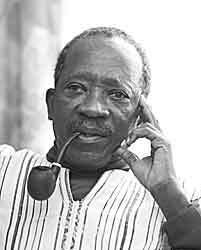A Quote by Rituparna Sengupta
Bengal is a very important seat of cinema for me. I can't even think of giving it all up.
Related Quotes
Bombay is far ahead of Bengal in the matter of female education. I have visited some of the best schools in Bengal and Bombay, and I can say from my own experience that there are a larger number of girls receiving public education in Bombay than in Bengal; but while Bengal has not come up to Bombay as far as regarded extent of education, Bengal is not behind Bombay in the matter of solidarity and depth.
I think cinema is needed throughout Africa, because we are lagging behind in the knowledge of our own history. I think we need to create a culture that is our own. I think that images are very fascinating and very important to that end. But right now, cinema is only in the hands of film-makers because most of our leaders are afraid of cinema.
I think what I loved in cinema - and what I mean by cinema is not just films, but proper, classical cinema - are the extraordinary moments that can occur on screen. At the same time, I do feel that cinema and theater feed each other. I feel like you can do close-up on stage and you can do something very bold and highly characterized - and, dare I say, theatrical - on camera. I think the cameras and the viewpoints shift depending on the intensity and integrity of your intention and focus on that.
To me, in life, if there's, like, a rule, and I think it's ridiculous, then of course I'll circumvent that but also point out how ridiculous the rule is. Other than that, if I go to a concert, and my seat is Row G, Seat 12, I'm sitting in Row G, Seat 12. I don't care if I'm with five other friends, I'm supposed to be in Seat 12, that's my seat.


































